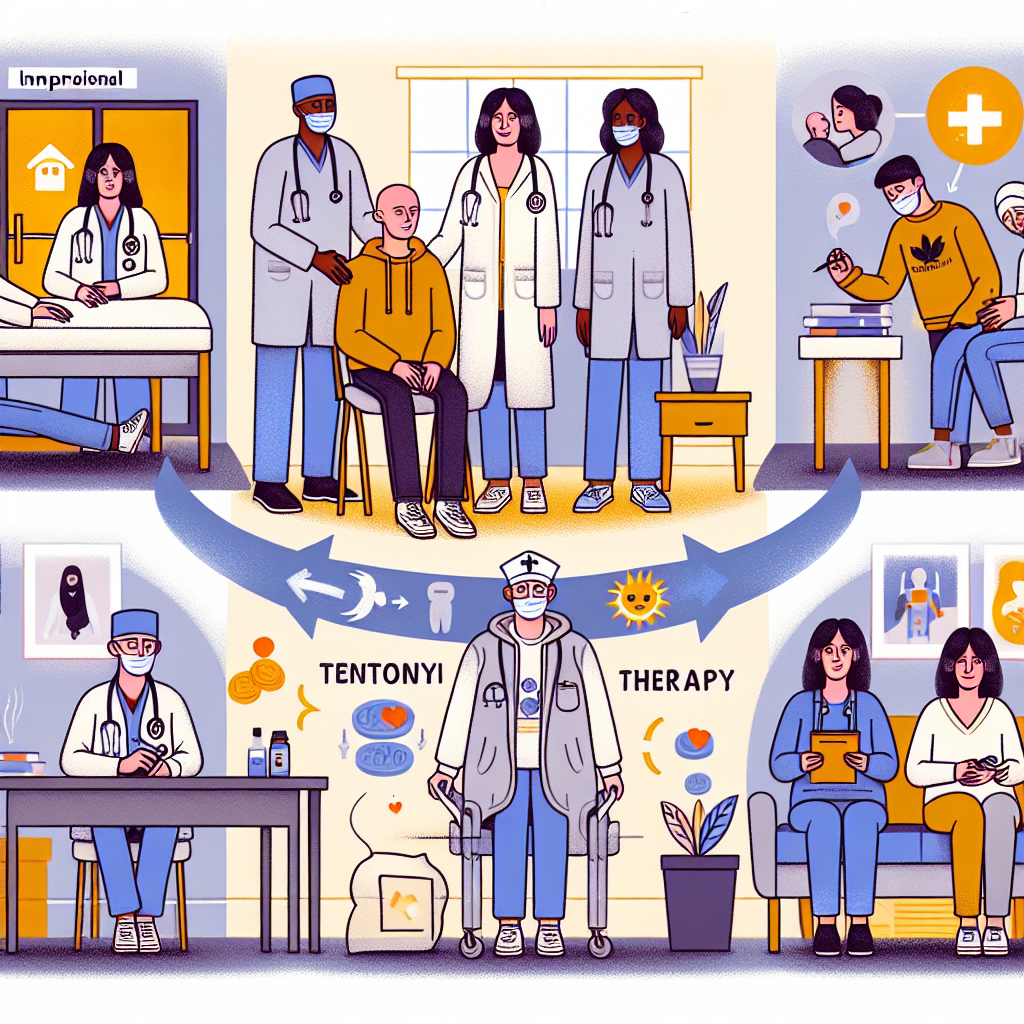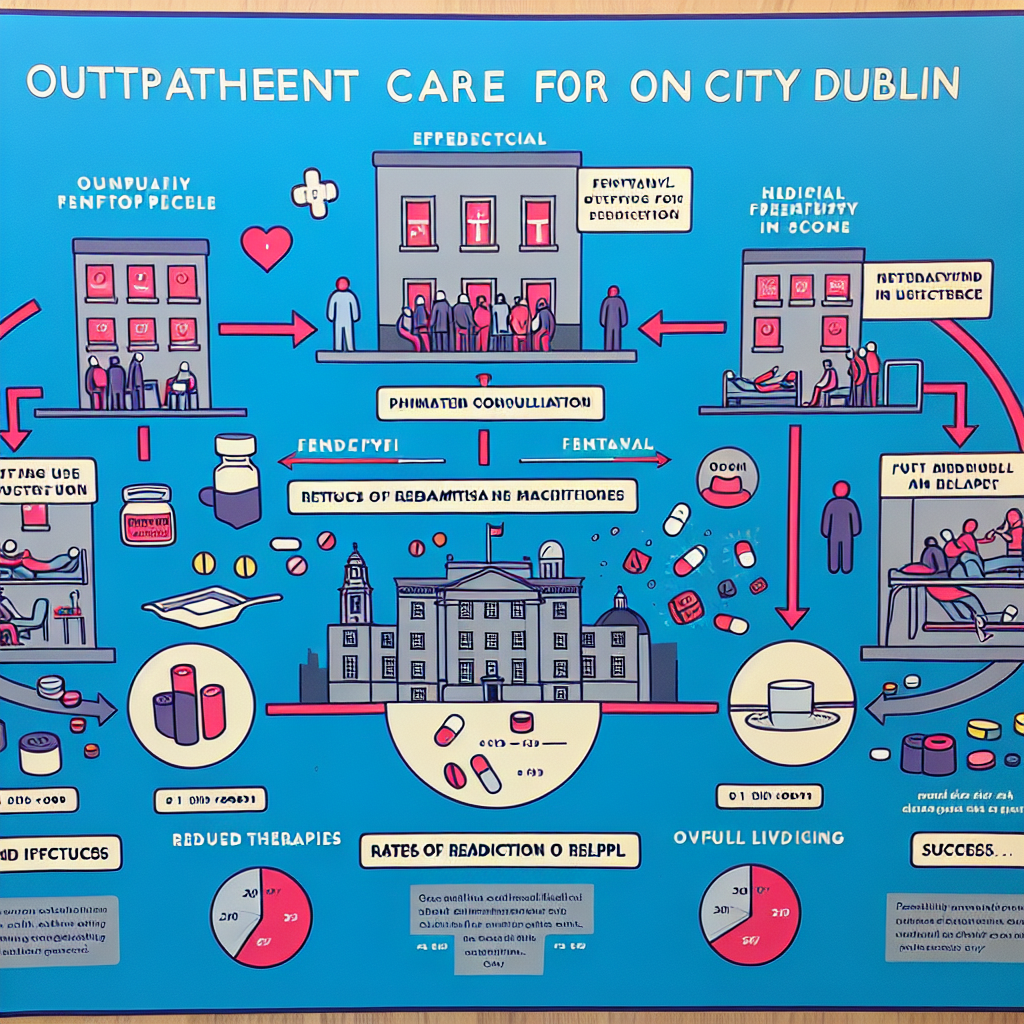-
Table of Contents

“Comprehensive Support, Safe Detox, and a Path to Recovery: Inpatient Care for Fentanyl Addiction”
Introduction
Inpatient care for fentanyl addiction offers a structured and supportive environment designed to help individuals overcome their dependency on this potent opioid. Patients can expect a comprehensive treatment plan that includes medical detoxification, where they are monitored and supported through withdrawal symptoms by healthcare professionals. This is followed by a combination of therapies such as cognitive-behavioral therapy (CBT), group therapy, and individual counseling to address the psychological aspects of addiction. Inpatient care also often includes educational sessions about addiction, relapse prevention strategies, and the development of coping mechanisms. The goal is to provide a holistic approach that not only focuses on detoxification but also equips patients with the tools and support needed for long-term recovery.
Comprehensive Treatment Plans in Inpatient Care for Fentanyl Addiction
Inpatient care for fentanyl addiction offers a comprehensive treatment plan designed to address the multifaceted nature of substance use disorders. When entering an inpatient facility, individuals can expect a structured environment that prioritizes their physical, emotional, and psychological well-being. The journey begins with a thorough assessment conducted by a team of healthcare professionals, including doctors, nurses, and therapists. This initial evaluation is crucial as it helps to create a personalized treatment plan tailored to the specific needs of the patient.
Detoxification is often the first step in the treatment process. Given the potency of fentanyl, medical supervision during detox is essential to manage withdrawal symptoms safely and effectively. Inpatient facilities provide 24/7 medical care, ensuring that patients receive the necessary support to navigate this challenging phase. Medications may be administered to alleviate withdrawal symptoms and reduce cravings, making the detox process more manageable.
Following detox, the focus shifts to therapy and counseling, which are integral components of the comprehensive treatment plan. Inpatient care facilities offer a variety of therapeutic modalities, including individual therapy, group therapy, and family therapy. Individual therapy sessions provide a safe space for patients to explore the underlying causes of their addiction, develop coping strategies, and set personal goals. Group therapy fosters a sense of community and support, allowing patients to share their experiences and learn from others who are on a similar journey. Family therapy aims to repair and strengthen relationships, recognizing the vital role that family support plays in the recovery process.
In addition to traditional therapy, many inpatient programs incorporate holistic approaches to treatment. These may include mindfulness practices, yoga, art therapy, and physical fitness activities. Such holistic methods aim to heal the mind, body, and spirit, promoting overall well-being and resilience. By engaging in these activities, patients can discover new interests and hobbies that contribute to a healthier lifestyle.
Education is another critical aspect of inpatient care for fentanyl addiction. Patients participate in educational sessions that provide valuable information about addiction, relapse prevention, and the importance of maintaining a sober lifestyle. These sessions empower individuals with the knowledge and skills needed to make informed decisions and avoid potential triggers in the future.
As patients progress through their treatment, they work closely with their care team to develop a comprehensive aftercare plan. This plan is designed to support their transition from inpatient care to everyday life, ensuring that they have the resources and support needed to maintain their sobriety. Aftercare plans may include outpatient therapy, support group meetings, and continued medical care. The goal is to create a seamless continuum of care that reinforces the progress made during inpatient treatment.
Throughout their stay, patients are encouraged to build a strong support network, both within the facility and in their personal lives. The connections made during inpatient care can provide lasting encouragement and motivation, helping individuals to stay committed to their recovery journey. By fostering a sense of community and belonging, inpatient care facilities create an environment where patients can thrive and rebuild their lives.
In conclusion, inpatient care for fentanyl addiction offers a comprehensive and holistic approach to treatment. From medical detoxification to therapy, education, and aftercare planning, each component is designed to support individuals on their path to recovery. With the right combination of professional care, therapeutic interventions, and personal determination, patients can overcome the challenges of addiction and embrace a healthier, more fulfilling future.
The Role of Medical Supervision in Inpatient Care for Fentanyl Addiction
Inpatient care for fentanyl addiction offers a structured and supportive environment where individuals can begin their journey toward recovery. One of the most critical aspects of this type of care is the role of medical supervision. Medical professionals play an indispensable role in ensuring that patients receive the comprehensive care they need to overcome their addiction safely and effectively. This article will explore the various ways in which medical supervision contributes to the success of inpatient care for fentanyl addiction, providing hope and inspiration for those seeking a path to recovery.
First and foremost, medical supervision in inpatient care ensures that patients undergo a thorough assessment upon admission. This initial evaluation is crucial as it helps healthcare providers understand the extent of the addiction, any co-occurring mental health disorders, and the overall physical health of the patient. By gathering this information, medical professionals can develop a personalized treatment plan tailored to the unique needs of each individual. This personalized approach increases the likelihood of a successful recovery, as it addresses the specific challenges and circumstances faced by the patient.
Detoxification is often the first step in the inpatient care process, and it is here that medical supervision is particularly vital. Fentanyl withdrawal can be severe and, in some cases, life-threatening. Symptoms such as intense cravings, anxiety, depression, and physical discomfort can make the detox process incredibly challenging. Under the watchful eye of medical professionals, patients can receive medications and other interventions to manage these symptoms and ensure their safety. This level of care not only alleviates the physical burden of withdrawal but also provides emotional support, helping patients to stay committed to their recovery journey.
As patients progress through their treatment, medical supervision continues to play a crucial role. Regular monitoring allows healthcare providers to track the patient’s progress and make necessary adjustments to their treatment plan. This ongoing assessment ensures that any emerging issues are promptly addressed, preventing potential setbacks. Moreover, medical professionals can provide education about the nature of addiction, helping patients to understand the physiological and psychological aspects of their condition. This knowledge empowers individuals to take an active role in their recovery, fostering a sense of control and self-efficacy.
In addition to managing the physical aspects of addiction, medical supervision in inpatient care also encompasses mental health support. Many individuals struggling with fentanyl addiction also face co-occurring mental health disorders such as depression, anxiety, or post-traumatic stress disorder. Medical professionals, including psychiatrists and therapists, work collaboratively to address these issues through a combination of medication management and therapeutic interventions. By treating the whole person, rather than just the addiction, inpatient care provides a more holistic approach to recovery.
Furthermore, the presence of medical supervision creates a safe and supportive environment where patients can focus solely on their recovery. The structured nature of inpatient care, combined with the expertise of medical professionals, reduces the risk of relapse and provides a solid foundation for long-term sobriety. Patients are surrounded by a team of dedicated individuals who are committed to their well-being, offering encouragement and guidance every step of the way.
In conclusion, medical supervision is a cornerstone of inpatient care for fentanyl addiction, playing a pivotal role in ensuring the safety, effectiveness, and overall success of the treatment process. From initial assessment and detoxification to ongoing monitoring and mental health support, medical professionals provide the comprehensive care needed to navigate the challenges of addiction. For those seeking recovery, the presence of medical supervision offers hope and inspiration, illuminating a path toward a healthier, more fulfilling life.
Q&A
1. **Question:** What types of therapies are commonly used in inpatient care for fentanyl addiction?
**Answer:** Inpatient care for fentanyl addiction commonly includes cognitive-behavioral therapy (CBT), individual counseling, group therapy, and sometimes medication-assisted treatment (MAT) to manage withdrawal symptoms and cravings.
2. **Question:** How long does inpatient care for fentanyl addiction typically last?
**Answer:** The duration of inpatient care for fentanyl addiction typically ranges from 30 to 90 days, depending on the severity of the addiction and the individual’s progress in treatment.
Conclusion
Inpatient care for fentanyl addiction typically involves a structured and supportive environment where patients receive comprehensive medical and psychological treatment. Expect a medically supervised detoxification process to manage withdrawal symptoms safely, followed by intensive therapy sessions, including individual and group counseling, to address the underlying causes of addiction. Patients will also participate in educational programs about substance abuse, develop coping strategies, and receive aftercare planning to support long-term recovery. The goal is to provide a holistic approach that not only focuses on detoxification but also equips patients with the tools needed for sustained sobriety.



